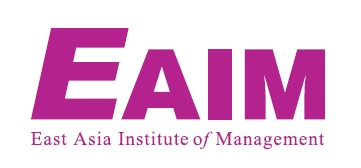In challenging times, mental health becomes an essential focus for maintaining overall well-being. Whether facing personal crises, natural disasters, or global events, understanding how to provide psychological first aid (PFA) can make a significant difference. EAIM’s course, Psychological First Aid: Mental Health Rescue During Hardship and Challenging Times, equips individuals with the skills to offer immediate mental health support, fostering resilience and recovery.
The Importance of Psychological First Aid
Psychological First Aid (PFA) is an evidence-based approach designed to support people in the immediate aftermath of a crisis. According to the World Health Organization (WHO), PFA helps reduce initial distress and foster short- and long-term adaptive functioning and coping.
Understanding Psychological First Aid
PFA involves humane, supportive, and practical help to fellow human beings suffering serious crisis events. It includes non-intrusive care and support, assessing needs and concerns, helping people address basic needs (such as food and water), and connecting them to information, services, and social support.
Key Components of PFA
- Safety and Comfort: Ensure that individuals are in a safe environment and provide comfort and practical support.
- Stabilization: Help individuals calm down and regain composure.
- Information Gathering: Collect information on what the individuals need and what concerns they have.
- Practical Assistance: Address immediate needs and concerns.
- Connection with Social Supports: Help establish contacts with family members, friends, or community services.
- Information on Coping: Provide information on stress reactions and coping strategies.
- Linkage with Collaborative Services: Connect individuals with additional services for further support.
Why Learn Psychological First Aid?
Learning PFA is not only beneficial for mental health professionals but also for educators, community workers, and anyone who might encounter individuals in distress. Psychological First Aid (PFA) is an evidence-based intervention designed to reduce initial distress and foster short- and long-term adaptive functioning. According to research, PFA helps reduce stress and improve coping mechanisms among those affected by traumatic events.
Benefits of EAIM's Psychological First Aid Course
Comprehensive Curriculum
The course covers various aspects of psychological first aid, including the basics of mental health, crisis intervention, and effective communication techniques. Participants will learn through a mix of theoretical knowledge and practical exercises, ensuring they can apply their skills in real-life situations.
Expert Instructors
Our instructors are seasoned professionals with extensive experience in mental health and crisis intervention. Their expertise provides students with valuable insights and practical knowledge, making the learning experience both enriching and applicable.
Hands-On Learning
EAIM’s course emphasizes experiential learning through role-playing and simulated scenarios. This approach allows participants to practice their skills in a controlled environment, preparing them for actual crisis situations.
Flexible Learning Options
Understanding the busy schedules of professionals, EAIM offers flexible learning options. Participants can choose from online, in-person, or hybrid modes, enabling them to learn at their own pace and convenience.
Real-World Impact of Psychological First Aid
Implementing PFA can lead to significant positive outcomes. Research by the National Center for PTSD indicates that individuals who receive PFA show lower levels of post-traumatic stress and depression. Moreover, organizations that train their staff in PFA can foster a more supportive and resilient workplace culture.
Enhancing Community Resilience
Incorporating PFA training in community settings can enhance overall resilience. When community members are equipped to support each other, the collective ability to cope with and recover from crises improves. This community-based approach has been advocated by various mental health organizations as a means to build stronger, more connected communities.
Conclusion
Mental health is a critical component of overall well-being, especially during times of hardship. By learning psychological first aid through EAIM’s course, individuals can provide immediate and effective support to those in need, fostering resilience and recovery. Investing in PFA training not only benefits individuals but also strengthens communities, making them more resilient in the face of adversity.
Enroll in EAIM’s Psychological First Aid course today and become a vital resource in your community, capable of providing essential mental health support during challenging times.

